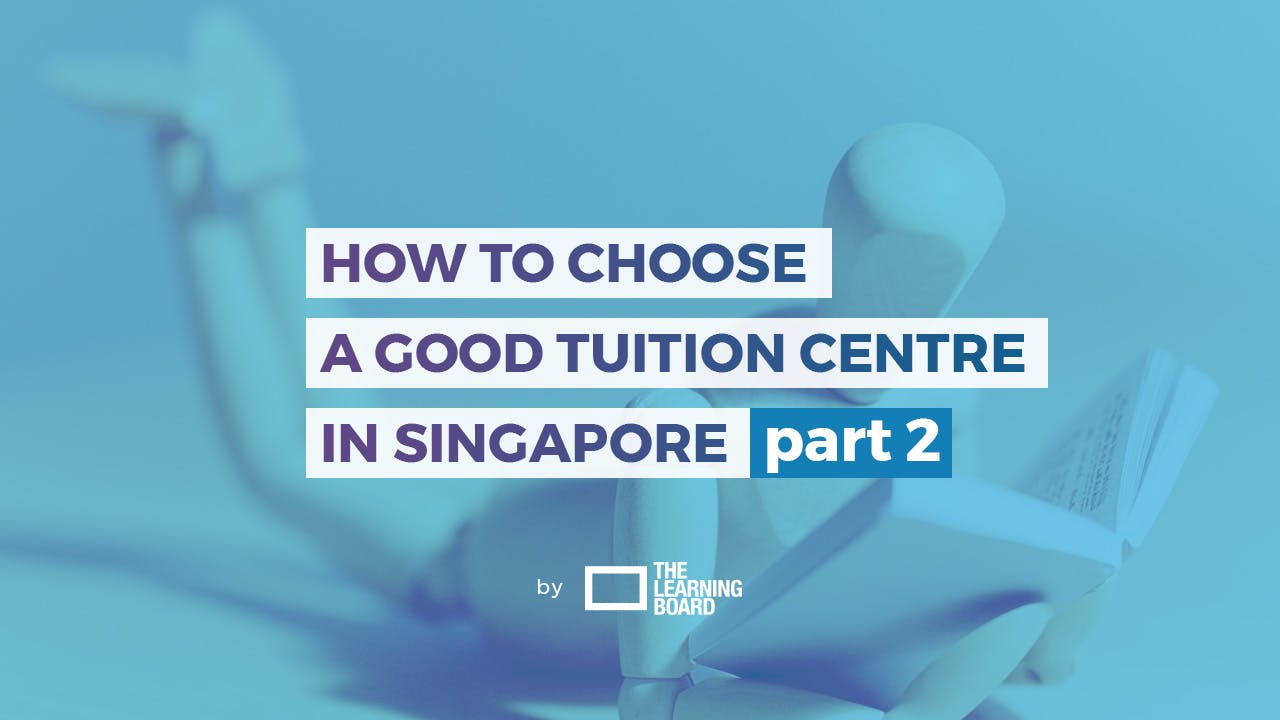If you haven't come up with a list of prospective tuition centres, you can read the first part of this series. Continue reading this post when you are about to visit a tuition centre.
After searching online and collecting recommendations with tips from the previous article, you may have come up with a list of tuition centres. This article gives you tips and insights of what to do when you visit those centres.
Ask for examples of the syllabus and programme overview
During your first visit to a tuition centre, ask the staff if you can have a look at the centre’s teaching materials. Although it’s almost impossible to evaluate the centre’s syllabus within this short amount of time, you can look at a particular topic to see the way that centre explains concepts and produces answers. It’s also beneficial to ask about the programme’s outline so you have a better understanding of what your child gets to learn if he or she enrolls.
Speak to the tutor
If you do not talk to a person, will you be able to trust him or her in guiding your child? In boutique centre centres, you will have better opportunity to talk to the tutor, introduce your child and yourself and give the tutor your child’s latest paper for evaluation. In case you see a receptionist first, kindly ask if it’s possible to meet the tutor after class. You may have 10 minutes for this chat, so make sure you come with some questions in mind. For example, you can ask about the programme coverage, fee, teaching technique, opinions about your child and so on. Your purpose is to clear any doubts and get to know the tutor personally.
Find feedback about your child’s strength and weakness
Depending on the centre, your appointment could be a trial lesson or a one-to-one consultation. If it’s a group lesson, your child can directly feel how class is conducted. If it’s a one-to-one session, the tutor can spend more time to understand your child’s problematic area. Nevertheless, at the end of your appointment, you can ask the tutor for his or her opinions on your child’s strength and weakness. By listening to those feedback and observing the way the tutor speaks, you can feel how interested the tutor is in helping your child improving his or her results.
See how connected your child feels toward the tutor
After you leave the centre, ask your child how he or she think about the tutor. It’s important that your child feels connected to the tutor and understand what the tutor said. It may not be obvious, but you can observe how comfortably your child behaved when he or she talked to the tutor. This is important in later stage of the learning journey. A good tutor not only teaches but also motivates students along the way. The ability to connect allows the tutor and his or her student work together as an efficient team. It also builds trust and confidence. With motivation coming to class, your child will improve to a greater extent.
Keep updated on your child’s progress after enrollment
Your search does not end at the time you enroll your child to a tuition centre. Give yourself a chance to reflect on your decision by asking your child for his or her feedback about lessons and the tutor. Usually after a month (4 sessions), your child and you will be able to tell if a centre is a good fit. Use this first month to raise your concerns to your tutor. A tutor who suits your child will be able to understand and help your child tackle his or her problems with custom solutions.


